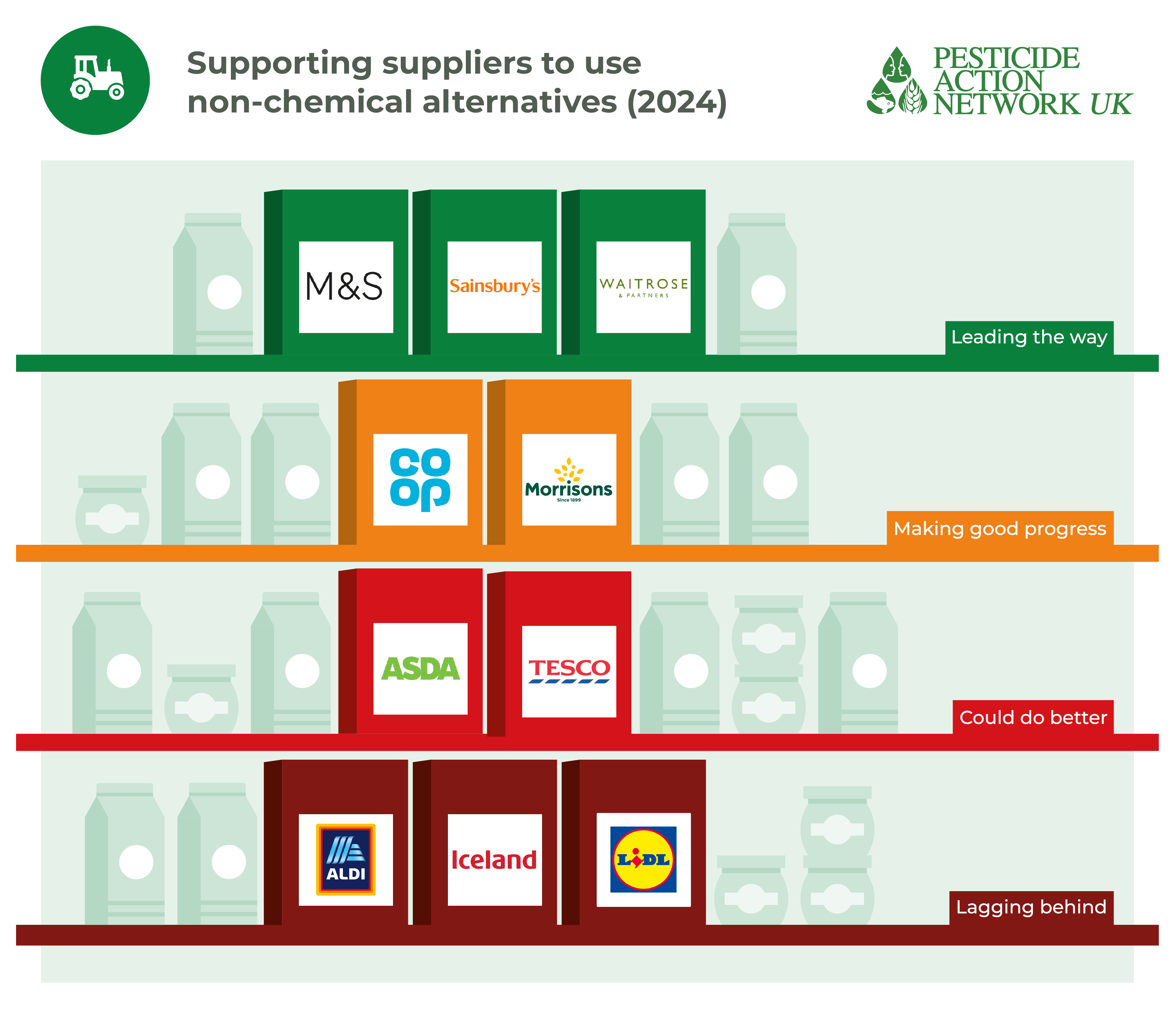
For decades, we have pushed an agricultural system based on growing intensive monocultures which rely on large amounts of pesticides. Pesticide use for arable crops – such as wheat and barley – is often high. Horticulture suffers similar problems with varieties of fruit and vegetables regularly chosen for their high yield or appearance rather than their resistance to pests and diseases. This often results in the overuse of pesticides on fruit and vegetables, particularly on those grown outdoors such as apples and pears.
This overuse of chemicals has broken many of the controls that nature previously had in place to prevent major outbreaks of pests. It is also driving insects and weeds to develop resistance to pesticides. As a result, farmers both in the UK and globally become trapped on the ‘pesticide treadmill’ whereby they are forced to use ever-increasing amounts of chemicals to protect their crop.
Meanwhile, farming has also become less and less profitable and many farmers now struggle to turn a profit. These tiny margins also drive farmers to use increasing amounts of pesticides, since they simply cannot afford for even part of their crop to fail. As a result they apply pesticides before problems emerge as an insurance policy. It is the equivalent of taking antibiotics in case you get flu.
Supermarkets should be helping their farmers to adopt non-chemical methods of pest control. This can involve but is not limited to:
- Conducting and sharing research into ways to control weeds and pests without pesticides.
- Providing general training and guidance to suppliers on non-chemical pest control.
- Offering bespoke advice to suppliers on how to deal with specific pest problems without resorting to chemicals.
- Creating mechanisms such as grower groups which enable suppliers to share best practice with each other.
- Reducing the use of post-harvest fungicides (which prevent fresh produce from rotting) by shortening supply chains, improving transport, storage and packaging, and using biopesticides.
While a handful of UK supermarkets are doing all of the actions listed above, many are only taking one or two and could therefore be doing much more to support their suppliers to move away from pesticides and adopt non-chemical alternatives. Supermarkets should be providing this support to their suppliers directly, and not relying on third-party certification schemes (such as LEAF or Red Tractor) to play this role.
As supermarkets ban more Highly Hazardous Pesticides from use within their global supply chains, it is absolutely vital that they support their suppliers and growers around the world to make the transition away from these chemicals and adopt healthier and more sustainable alternatives.








